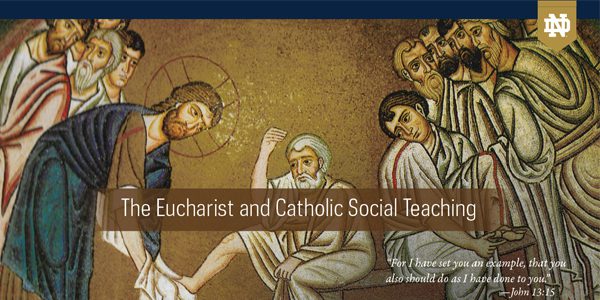How to make the best of Brexit: Experts weigh in
The US should work proactively with Ireland and the UK to mitigate the political and economic complications Brexit may bring, experts argued during a recent panel discussion at the Keough School’s Washington Office.
The forum, “Brexit, Brinkmanship, and the Future of Ireland: The Role of the US in Safeguarding the Northern Ireland Peace Process,” was hosted by the Nanovic Institute for European Studies and the Keough-Naughton Institute for Irish Studies, both part of the Keough School.
The conversation took place before the UK’s December 12 general election, where voters handed Prime Minister Boris Johnson and his Conservative Party a landslide win, moving Brexit a step closer to reality. The UK currently has a January 2020 deadline to leave the EU, and Parliament is expected to vote soon on whether to approve an exit deal. If the UK were to leave without a deal, that would risk the return of a hard border between Ireland and Northern Ireland, and with it, renewed political instability.

The panel discussion underscored the importance of ensuring Brexit’s evolving negotiations continue to protect the 1998 Good Friday Agreement—a historic peace agreement that for more than two decades has allowed Ireland and Northern Ireland to enjoy a seamless border.
Amanda Sloat, Robert Bosch Senior Fellow for the Center on the United States and Europe at the Brookings Institution, stressed that the United States could play an important role in the process, in part by supporting efforts to reconstitute Northern Ireland’s government. The country has been without a working government since January 2017 because of disagreements between political parties—the pro-British Democratic Unionist Party, which has championed Brexit, and the nationalist party Sinn Fein.
Sloat recalled a recent visit to Belfast, where an Uber driver told her there had been a yearlong trial period where rideshares could use bus lanes in an effort to manage traffic. The trial period had ended, and no one was available to make a decision on whether to continue it.
“It’s a small and pretty simplistic example,” Sloat said, “But it illustrates what is happening in Northern Ireland when you don’t have ministers in place to make these decisions.”
Read more here.
October 24, 2019



